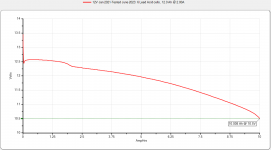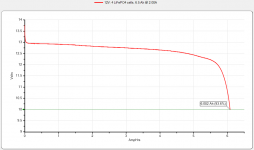I did not know that batteries declined so much. Would you would replace personal UPS batteries every two years if they were at your residence?
In my personal experience lead acid batteries are sh*t after 2 or 3 years. That's one reason I stopped bothering with UPSes. Besides the cost, it's creating more electronic waste. And we almost never have power outages lasting more than a few seconds*. To me LiFePO4 are the only type of battery which makes any sense in a UPS, and even then they should be floated at no more than 3.4V per cell. That might require adjusting the float voltage if you're swapping them in place of a SLA battery.
* This got me thinking about a UPS based on using supercaps instead of batteries. The idea is enough capacity for perhaps a minute, basically to get you through the much more common very brief power interruptions, as opposing to a full-on blackout. Since supercaps are rated for at least 6 figures of cycles, and don't degrade with time, this would be a permanent solution. If you want to back up a system drawing 500 watts maximum, you might need supercaps storing perhaps 50,000 joules. For comparison purposes this is roughly the energy contained in one 18650 cell. To that end about 24 of
these would be sufficient. Cost would be only $100 plus the cost of a balancing board. Maybe put them in a 6S4P arrangement which gives you a 333F, 16.2V supercap capable of storing about 43,700 joules. Assuming an inverter efficiency of 80%, you'll get about 35,000 joules at the AC outlet. This could run a 500 watt system for 70 seconds. It could run mine (average under 100 watts including the monitor) for almost 6 minutes.



